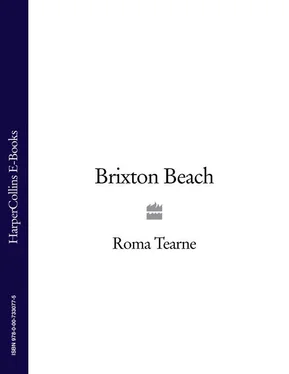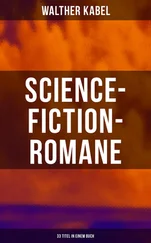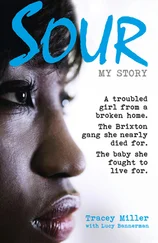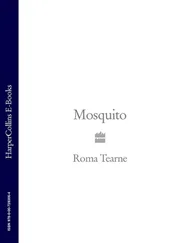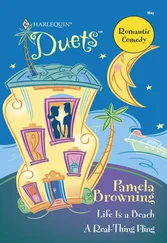Brixton Beach
ROMA TEARNE

In memory of N M C whose story,
discarded for forty years, is told at last.
And for Barrie,
Oliver, Alistair and Mollie.
All of life is a foreign country
JACK KEROUAC,
letter (24 June 1949)
Epigraph
Part 1 - Bel Canto
Part 2 - Paradiso
Chapter 1
Chapter 2
Chapter 3
Chapter 4
Chapter 5
Chapter 6
Chapter 7
Part 3 - Inferno
Chapter 8
Chapter 9
Chapter 10
Chapter 11
Part 4 - Purgatorio
Chapter 12
Chapter 13
Chapter 14
Part 5 - Bel Canto
Chapter 15
Chapter 16
Chapter 17
Acknowledgements
Also by Roma Tearne
Copyright
About the Publisher
Bel Canto Table of Contents Epigraph Part 1 - Bel Canto Part 2 - Paradiso Chapter 1 Chapter 2 Chapter 3 Chapter 4 Chapter 5 Chapter 6 Chapter 7 Part 3 - Inferno Chapter 8 Chapter 9 Chapter 10 Chapter 11 Part 4 - Purgatorio Chapter 12 Chapter 13 Chapter 14 Part 5 - Bel Canto Chapter 15 Chapter 16 Chapter 17 Acknowledgements Also by Roma Tearne Copyright About the Publisher
THERE ARE POLICE EVERYWHERE. From a distance it is the first thing he sees. Even before he hears the noise of sirens, the screams. Even before the BBC team appears. Acid-green jackets move grimly about, directing the traffic, securing blue-and-white tape, herding people away. That’s what he sees. A red, double-decker bus stands parked at an odd angle, black smoke pouring out of its windows. There is glass everywhere. His feet crunch on it and he notices shards glinting dangerously in the light. His first thought is, Someone might cut themselves; his second is, There must have been a fire.
‘Move along, please, clear the path,’ the policeman shouts, roughly.
He pushes several people back with the palms of his hands. Then he speaks into his radio. There is a smell of sweat and rubber. And explosives.
‘We need another ambulance over at checkpoint four,’ the policeman says. ‘Quickly. They’re bringing more out. Have all the hospitals been alerted?’
‘We need the reinforcements, now!’
‘Yes. They’re on their way.’
‘What happened?’ Simon asks, urgently. ‘Was it a fire?’
His voice is hoarse; his throat has tightened up. There is an even tighter constriction across his chest. He has been running. All the way over Lambeth Bridge, along Horseferry Road, up Park Lane towards Edgware Road. He wanted to go in the opposite direction, towards the Oval and the house named Brixton Beach. For a moment he had wavered, wanting to call at the house, knock on its blue-fronted door, but then he had carried on running. There are no taxis to be had. The traffic is gridlocked. It will be gridlocked for hours. He should be at work, he should be at his post, standing by waiting for the admissions, triaging the flood of casualties, but he has fled, unthinkingly. Never in the whole of his professional career has he behaved in this irresponsible way. Panic chokes his voice; fear grips his limbs as he scans the faces in front of him.
‘Clear the path, please.’
The noise of yet another ambulance siren deafens him. He isn’t used to hearing the sirens from the outside. He is used to the calm of the operating theatre, the controlled energy of work. Scalpels placed where they are always placed, nurses ready to second-guess his moves. He is not used to chaos.
‘Oh my God! Oh God! Look! Look!’ a woman screams.
Her voice goes on and on screaming, making sounds but no sense. It is only then Simon glances up and sees the bus. Its top has been completely blown off. Roof, seats, windows, people. Half a bus really, standing motionless save for the thin wisps of smoke sailing lazily out, upwards like a kite; into a sky of startling blue. A man in rags with blackened face and arms walks past holding on to a young boy. Tears furrow his face leaving rivulets of white flesh. Two new ambulances edge their way slowly forwards, sirens blasting, driving the onlookers aside, clearing a path, deafening in intensity, removing all possibility of speech. Three policewomen stand forming a barrier with their arms stretched out, faces braced for what they are about to receive. In a moment the ambulances are swallowed up in the crowd. Simon can smell burning. As the sirens grow fainter he begins to hear other, human sounds and he struggles to move forward.
‘Jesus! What is it? What’s happened?’
‘Does anybody know?’
‘Don’t touch them … for God’s sake!’
‘Oh my God!’
‘Mummy!’
A child’s voice with its upwardly rising intonations, distinct and pure above the cacophony of cries, drifts towards him. The blood pounds in his head, blurring his eyes, making him nauseous. He was hot from running, now he is shivering. A motion of a different kind grips his whole body.
‘Let me through,’ he says. I’m a doctor.’
Inside the blasted double-decker bus, as his eyes focus, he sees that trapped bodies are burning. Some of them are simply torsos without heads.
I’m a doctor,’ he shouts. ‘Let me through.’
I’m sorry, sir, can I see your ID, please?’
The ambulancemen are moving a stretcher and two blood-covered individuals are helped inside. Simon reaches for his doctor’s pass then realises he has left the meeting without his jacket. He has nothing. No ID, no mobile phone, no wallet. If she were trying to reach him she would not be able to. He has rushed out, knowing … knowing what? That he couldn’t wait? That he needs to see for himself?
‘Could you move back, please,’ the policeman says.
His voice is edged with panic, bewildered and with a threat underlying the calmness in it. The glint of metal on his belt is the firearm he is prepared to use in case of necessity. Sweat pours down his face as he answers his radio. He is young, mid-twenties, and what has just happened is overwhelming him. It will mark him forever.
‘We don’t know what’s going on, sir. We’ve only been told there’s been a series of explosions. In the underground. Yes, sir.’
But the bus?
Al-Qaeda?’ asks another voice, uncertain, shaky, on the verge of hysteria. A woman’s voice. ‘Oh my God no! Not here , not in Britain?’
‘Don’t know, madam. Not at this stage. Sorry.’
Simon feels weak. He has to get to the entrance of the tube station; he has to find out what’s actually happened. He needs a mobile phone desperately. Then he remembers, of course, all his phone numbers are in his own phone. He can’t remember any of them. So he pushes his way across the crowds that are gathering and crosses the road, weaving through the stationary traffic. Another policeman stops him.
‘Sorry, sir, could you step aside, please. This area has been closed off to the public’
‘I’m a doctor,’ he says again, his voice barely above a whisper.
‘Can I see your ID, then, sir?’
But of course he hasn’t any. Helplessly he is shepherded across the road, along with a few other onlookers. The sun is exceptionally strong. There isn’t even a small breeze. It is a morning of tropical intensity, a day for spending on the beach, perhaps. There are more sounds as another fleet of ambulances rushes past. The sirens have hardly stopped since Simon arrived.
‘Must be sending them out from several hospitals, I reckon,’ the man beside him remarks.
Читать дальше
